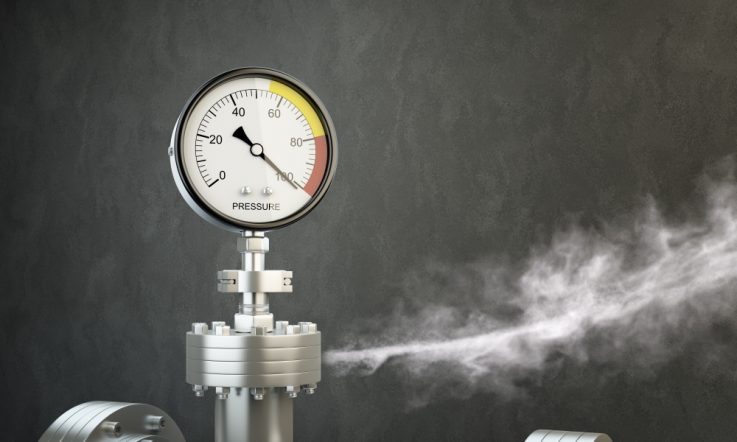Do teachers in state schools encounter the same work stressors as their colleagues working in the private sector? And if so, what are those stressors?
In their journal paper, Comparing sources of stress for state and private school teachers in England, Jude Brady and Dr Elaine Wilson from the University of Cambridge in the UK compare the sources of stress experienced by 20 teachers in the state sector to those of 20 teachers in the private sector.
Brady says she started thinking about doing this study when she was a teacher herself.
‘Some of my talented and passionate colleagues were leaving teaching all together or leaving state schools to work in private schools, and they were citing stress as one of the reasons for their departures,’ she tells Teacher.
‘I wanted to understand the sources of the stress that could lead teachers to feel that a career in the state sector was untenable, and I wanted to understand how the sources of stress compared across sectors as there wasn’t much information about this topic in relation to fee-charging schools.’
To do this study, the researchers analysed data collected in interviews and focus groups with classroom teachers and middle leaders working in mainstream primary and secondary schools in England.
The semi-structured interviews and focus groups asked teachers questions concerning the best and worst aspects of their work, the areas of their work that they found stressful, and questions concerning workloads and experiences of internal and external school monitoring.
Are the stressors the same?
Brady and Wilson found that state and private school participants identified different areas as contributors towards their work-related stress.
‘Private school participants emphasised parents as a source of stressful accountability, whereas the state school teachers typically emphasised burdensome workloads compounded by accountability-motivated school policies as their primary stressor,’ they report.
The researchers also note that there were differences in the nature of the teachers’ narratives. ‘Some teachers in the state sector described their work as intensely stressful, whereas the private school teachers typically described milder experiences of stress. The private school participants also indicated that they felt well-resourced to meet the demands of their work by long holidays and appropriate levels of autonomy,’ the authors say in their paper, published last month in the journal Improving Schools.
What are the key stressors?
Workload
Workload was identified as a main stressor for state school teachers working in both primary and secondary education.
‘Teachers spoke of their workloads as “absolutely overwhelming”, “daunting”, “relentless” and others used the image of “drowning” in work. Feelings of stress arose from both the volume of work and the nature of work. Some spoke of the number of books that they needed to mark, and this was particularly stressful for teachers when they felt that the marking did not help pupils,’ Brady and Wilson share.
Private school teachers also said they worked long hours, but conceded holidays acted as ‘compensation’ for their long working weeks. By comparison, only one state school teacher explicitly identified holidays as a resource that equipped her to deal with the demands of her intense term-time work.
Pushy parents
In their interviews, private school teachers explained that pushy parents contributed to their workplace stress.
‘Teachers at private schools explained that parents expected high academic outcomes (sometimes regardless of the pupil’s interest in academic work), and that they demanded instant replies to emails, meetings at short notice and were inclined to ask for “investigations” into teachers’ conduct if their child was aggrieved by any kind of school sanction.’
The researchers say this contributed to an overall sense that teachers and parents were in a business/client relationship, which positioned teaches as ‘answerable to the parents’. They report several interviewees made comments of the type that parents were paying ‘large sums of money’ and therefore held high expectations. In contrast, participants from the state sector rarely noted parents as a direct source of stress.
Work scrutiny
Some state school teachers described teaching as a highly stressful profession that left teachers struggling with long-lasting negative psychological and emotional effects. Some perceived that school leaders enacted burdensome policies that led to excessive workloads. Participants attributed these accountability cultures to the wider demands of the schools inspectorate (Ofsted).
Private school teachers’ views on accountability differed from their state school counterparts. They reported parents were the primary agents of accountability and that they were free from unnecessary scrutiny from school managers. Others said school monitoring policies – like book marking inspections and unannounced classroom inspections – were sources of stress.
Pupil behaviour
There were some instances of state sector teachers reporting extreme incidents of pupil misconduct (one had been physically assaulted by a pupil), but the researchers note these reports were exceptional.
Brady says this was a standout finding to come from the study, and she was surprised that student behaviour was not a more prevalent theme in their state school data. ‘Other studies have found that pupil behaviour can be a key source of stress for teachers, so I was surprised when this wasn’t reflected in our study,’ she tells Teacher.
‘Instead, we found that teachers in both sectors were motivated and enthused by their direct work with pupils; this was the part of the job that they seemed to cherish the most. They were more likely to cite excessive workloads or unhelpful monitoring systems and practices as a source of stress than pupils.’
In conclusion
Brady says she hopes the findings from this study show that teachers are really committed to working with their pupils and they enjoy these relationships.
‘State teachers often felt stressed by policies that added to burdensome workloads and feelings of not being trusted and private school teachers sometimes found relationships with parents stressful – but as our findings show, it doesn’t need to be like this in either sector,’ she says.
‘There were positive examples of teachers who worked in schools that allowed them professional autonomy and helped them to focus on the aspect of the job that matters the most: supporting pupils to develop.’
References
Brady, J., & Wilson, E. (2021). Comparing sources of stress for state and private school teachers in England. Improving Schools, 13654802211024758. https://doi.org/10.1177/13654802211024758
How often do you make time to focus on your own wellbeing and reduce stress? What strategies do you use to cope with the pressures of your role? Does your school have a wellbeing policy for staff, as well as students?



